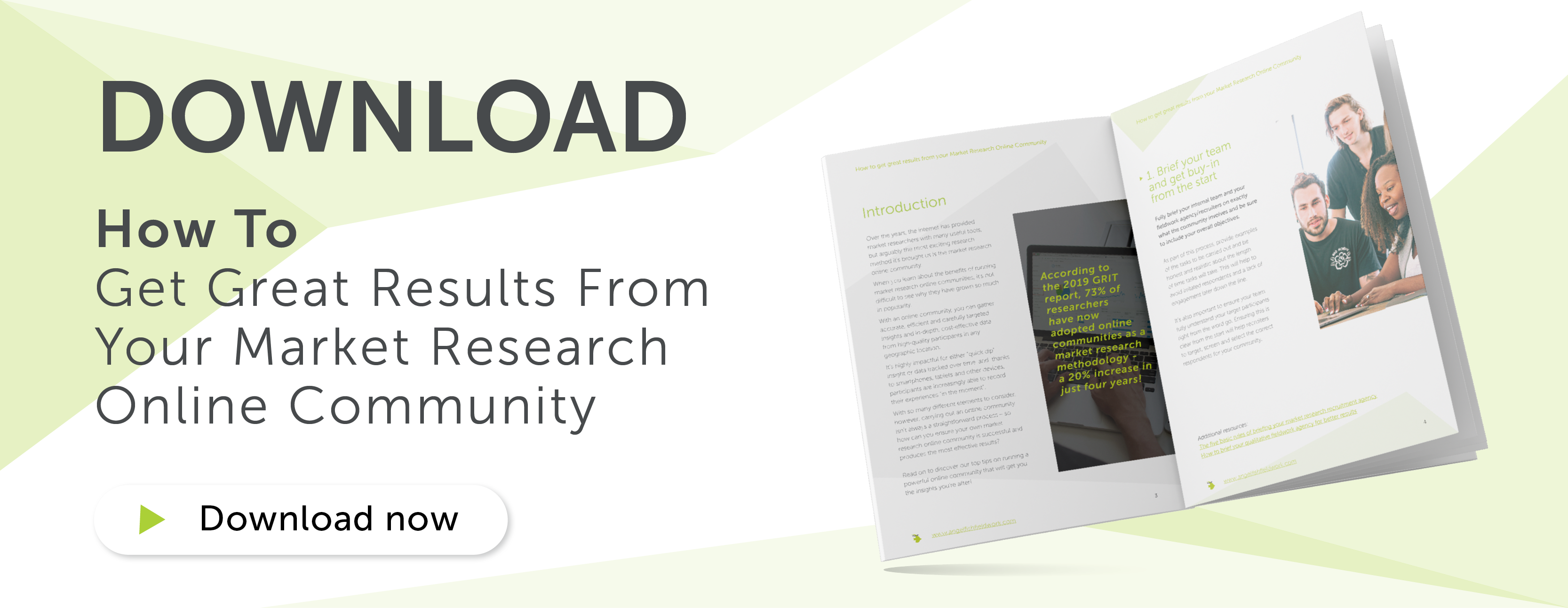
How to Make Online Research with Baby Boomers a Success
The term “baby boomers” refers to those born between 1946 and 1964, with an age range spanning 61-79 years old. According to the 2021 Census data for England and Wales, 24.4% of the population—approximately 14.5 million people—were aged 60 years and over.
Despite millennials and Generation Z accounting for more of the population, baby boomers are a really important demographic for market research, because quite often they are the ones with the biggest spending power. They can be more affluent than other generations and have more disposable income - so it’s really important that brands understand what appeals to them and know how to target them.
When it comes to market research, it can be easy to cast stereotypes on boomers. Many people assume this generation shy away from digital tools and prefer traditional methods. But in reality, online methodologies are a fantastic way to engage with baby boomers.
Why Baby Boomers Make Great Research Participants
Let’s look at the stats:
- Someone turns 50 in the UK every 40 seconds
- People over 50 control 89% of all disposable wealth in the UK
- Women over 50 account for 68% of cosmetics purchases per year
- People over 50 account for more than 70% of the luxury travel market
Yet…
- Just 11% of baby boomers feel that brands are interested in them
- And just 4% of people in this age group feel that advertising is aimed at them
- Whilst one in five feels completely excluded by marketing
And
- In the last decade, boomers have increased their consumer spending on average of 4.4% a year - which is faster than any other demographic!
Baby Boomers: Busting the Myths
So, as it turns out, baby boomers are an essential part of the economy. And while marketers often focus on millennials and Gen Z, it's boomers who hold the purse strings. Still, stereotypes persist: that they're brand loyal, wary of tech, and resistant to change.
As a result, people assume that face-to-face research methodologies (such as an online market research community or focus groups) or more traditional techniques (like telephone interviews) are best suited to older generations. But with an age span of 20 years, it’s not fair to tarnish an entire generation with the same brush. Sure, a 79-year-old might not use TikTok, but boomers are far more tech-savvy than they’re often given credit for.
So, here’s how – and why – to conduct online studies with baby boomers.
They Embrace Technology – And So Should You
Baby boomers are capable of more than you might think. The internet is now over 40 years old, which means baby boomers have lived through most of its development. They’re not just familiar with technology – they actively use it.
In fact, research shows that:
- Just 2% of over-50's hate using technology, compared to 78% who actively enjoy using it
- 96% use search engines, 95% use email and 92% shop for products and services online rather than shopping in-store
- And over 82% of boomers belong to at least one social media site
So when it comes to market research, this means that baby boomers actually respond well to online methodologies such as online focus groups, digital ethnographies, and marketing research communities. Not only that, but digital recruitment techniques such as social media work really well too; boomers are big users of Facebook, so targeted campaigns are a fantastic way to reach out and engage with them.

Keep it Clear and Informative
We’ve all read the well-known statistic that consumers today have an attention span shorter than a goldfish - so it’s no wonder that market researchers tend to use short, snappy tasks to engage with and hold the attention of younger audience such as millennials and Generation Z!
However, baby boomers actually like to go into finer detail. When they buy something, they take their time to really research and read about it, taking each purchase as a big commitment. So likewise, when it comes to online market research, particularly in a market research community setting, they’ll want to have all the details easily accessible in one place for them to read so they know where they’re at and what is expected of them.
We’d therefore recommend printing out an information sheet or project overview to make sure you cover all bases and answer any questions they might have - and make sure you don’t use any technical jargon or slang either!
Use the Right Tech
Research shows that, whilst baby boomers do prefer to do things online, they are more likely to do so via desktops and laptops as opposed to phones and tablets. A study by Millward Brown found that 31% of baby boomers use their laptops or PCs to shop online.
You’ll be far more likely to get the best results out of your participants if they are comfortable and engaged, so when it comes to conducting online research with baby boomers, it’s important to choose the right type of software that can be used on desktops as well as mobiles.
As mentioned above, boomers like to have a clear understanding of what’s going on and feel in control,
so selecting the right type of software that appeals to them is especially important. Make sure they have the contact details of a support team should anything go wrong or if they have any further questions, too!
They Want to Take Part
Baby boomers are often made to feel invisible by brands: with marketing and advertising campaigns frequently aimed at young audiences, it’s no wonder they are referred to as the ‘forgotten generation’.
But the fact is, they want to get involved! They want to get their opinions out there, and they want to keep contributing to society. They have a voice, they want it to be heard - and they are more than comfortable using online methodologies to do so.
The Proof is in the Participation
We previously carried out a study where we recruited respondents aged 55-75 to take part in a study that combined telephone interviews with an online market research community. Due to the age of the target audience, it was assumed that we would need to offer out more telephone interviews - but this wasn’t the case at all.
In actual fact, the majority chose the online community because it was more flexible, engaging, and fun.
They took part enthusiastically, shared detailed feedback, and even enjoyed the video elements of the study.
Final Thoughts
It’s time to move beyond stereotypes. Baby boomers have significant spending power and a strong online presence. They’re ready to contribute – all they need is the opportunity.
Want to find out more about how you can get the best out of your market research online community? Take a look at our website for more info, and don’t hesitate to get in touch if you’d like to discuss your project with our expert team!














